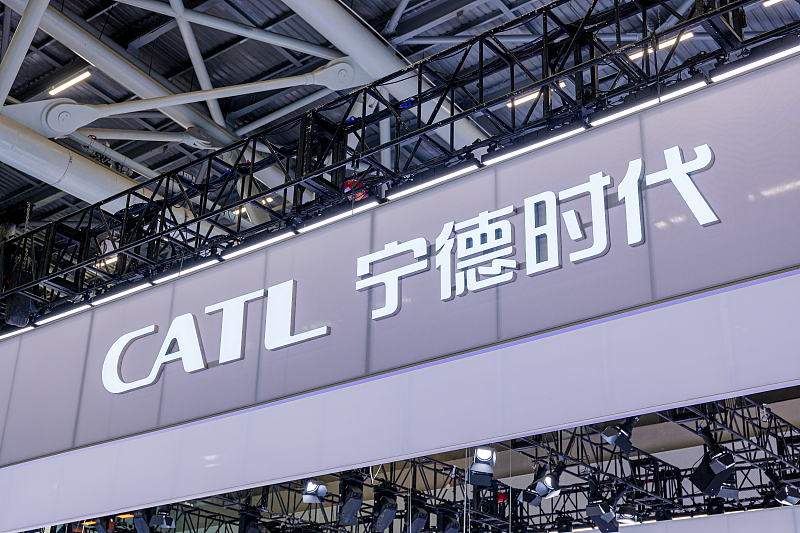
Any attempt at protectionism or false accusations will not hinder Chinese electric vehicle battery makers from going global, as major battery firms Contemporary Amperex Technology Co Ltd and Gotion High-Tech rejected US lawmakers' allegations of so-called forced labor at their units.
A group of US Republican lawmakers have said that the two Chinese firms should be immediately added to the "entity list", accusing their supply chains of using forced labor, according to The Wall Street Journal.
READ MORE: Chinese EV battery giants reject US 'forced labor' allegations
CATL said the accusation is "groundless and completely false "and that information about some suppliers is inaccurate and misleading.
"With some suppliers, business relations ceased long ago. With other suppliers, business relations have been conducted with different subsidiaries and with absolutely no connection to forced labor or anything that violates US applicable laws and regulations," the company said.
CATL said it adheres to the highest business and ethical standards and has effective policies in place to ensure a responsible and sustainable supply chain according to the highest global standards.
According to South Korean market consultancy SNE Research, China dominates the global power battery market with a 63.9 percent share as of the first four months this year. CATL remains the largest, while Gotion is ranked ninth globally.
Gotion High-Tech said any allegations suggesting it engages in forced labor or is related to that practice are "completely unfounded and absolutely false".
"Gotion High-Tech has consistently upheld the values of respecting human rights and protecting employee rights. Our selection of partners is also based on a rigorous audit mechanism and evaluation standards," it said.
The latest accusations from US lawmakers are yet another protectionist attempt after the previous one on China's so-called overcapacity problem, and come after recent tariff hikes by the US government on Chinese batteries and other EV products.
In terms of the latest tariffs on Chinese batteries, Ray Chen, vice-president of Gotion's US business, told China Daily that globalization is an irreversible trend and any protectionism policies or geopolitical effect will only be short term.
"They won't stop us in going global," Chen said, adding that the new tariffs on Chinese batteries will have limited impact on the country's battery sector.
"No matter how much tariffs the US imposes, Chinese battery makers still have an obvious cost advantage there. In other words, the tariffs will not weaken the competitiveness of Chinese batteries in the US market in the short term," he said.
Gotion, which is backed by Volkswagen Group, plans to have 100 GWh of capacity in each of its major overseas markets, namely the Americas, Europe and Africa, and the Asia-Pacific region, by 2030.
Zhang Hong, a member of the expert committee of the China Automobile Dealers Association, said the US tariffs will have limited impact on the upstream and downstream EV industry chain firms, but US counterparts will suffer from rising costs.
ALSO READ: Battery sector charges ahead for superior tech
"Many US automakers are now forced to adjust their battery supply chain structures, resulting in rising car manufacturing costs. Even with federal tax credits, according to US media calculations, US car companies will lose $6,000 for every $50,000 EV they sell," Zhang said.
Wei Wei, assistant professor at the Hong Kong University of Science and Technology (Guangzhou), said that China's NEV industry and related supply chains like batteries have made indispensable contributions to the world.
"They have been continuously offering affordable, high-quality capacity, which will make a significant contribution to global green and economic development," Wei said.


